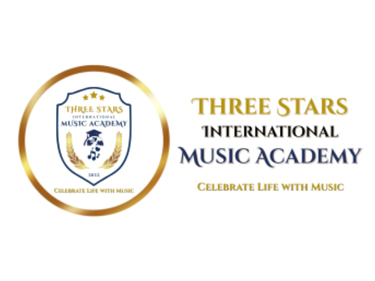
Why Every Child Deserves Music in Their Life
At Three Stars Music Academy, we don’t just teach music—we nurture creativity, focus, and emotional intelligence.
Sugander Santhapuri
4/23/20252 min read


Introduction
Music is a universal language that transcends boundaries and connects people across cultures and generations. For children, engaging with music is more than just a pastime; it's a vital component of holistic development. From enhancing cognitive abilities to fostering emotional intelligence, music plays a pivotal role in shaping well-rounded individuals.
Watch this YouTube video on "Importance of Music Education"
'
Watch this YouTube video on: "5 Benefits of Music for Children":
Cognitive Benefits of Music Education
Engaging in music education has been shown to significantly enhance cognitive functions in children.
Enhanced Memory and Attention: Learning music requires memorization of notes, rhythms, and lyrics, which strengthens memory and attention skills.
Improved Language Skills: Music education supports language development by enhancing phonological awareness and auditory discrimination.
Boosted Academic Performance: Studies indicate that students involved in music programs often achieve higher scores in subjects like math and reading.
Emotional and Social Advantages
Music serves as a powerful tool for emotional expression and social interaction.
Emotional Expression: Through music, children can express feelings they might not yet have the words for, aiding emotional development.
Increased Self-Esteem: Mastering an instrument or performing can boost a child's confidence and self-worth.
Enhanced Social Skills: Participating in group music activities fosters teamwork, cooperation, and empathy among peers.
Physical Development Through Music
Music education contributes to the physical growth of children in various ways.
Fine Motor Skills: Playing instruments like the piano or violin enhances hand-eye coordination and dexterity.
Gross Motor Skills: Dancing and movement to music improve balance, coordination, and spatial awareness.
Cultural Awareness and Appreciation
Exposure to diverse musical genres and traditions broadens a child's cultural horizons.
Understanding Diversity: Learning about music from different cultures fosters respect and appreciation for global diversity.
Historical Insight: Studying the origins and evolution of music provides context to historical events and societal changes.
Music as a Lifelong Companion
Instilling a love for music early on can lead to lifelong benefits.
Stress Relief: Engaging with music can serve as a coping mechanism during stressful times.
Continued Learning: Music encourages continuous learning and personal growth beyond formal education.
Advocating for Music Education
Despite its numerous benefits, music education often faces challenges in accessibility and funding.
Equity in Access: Ensuring all children, regardless of socioeconomic status, have access to quality music education is crucial.
Community Support: Community involvement and advocacy can play a significant role in sustaining and expanding music programs in schools.


